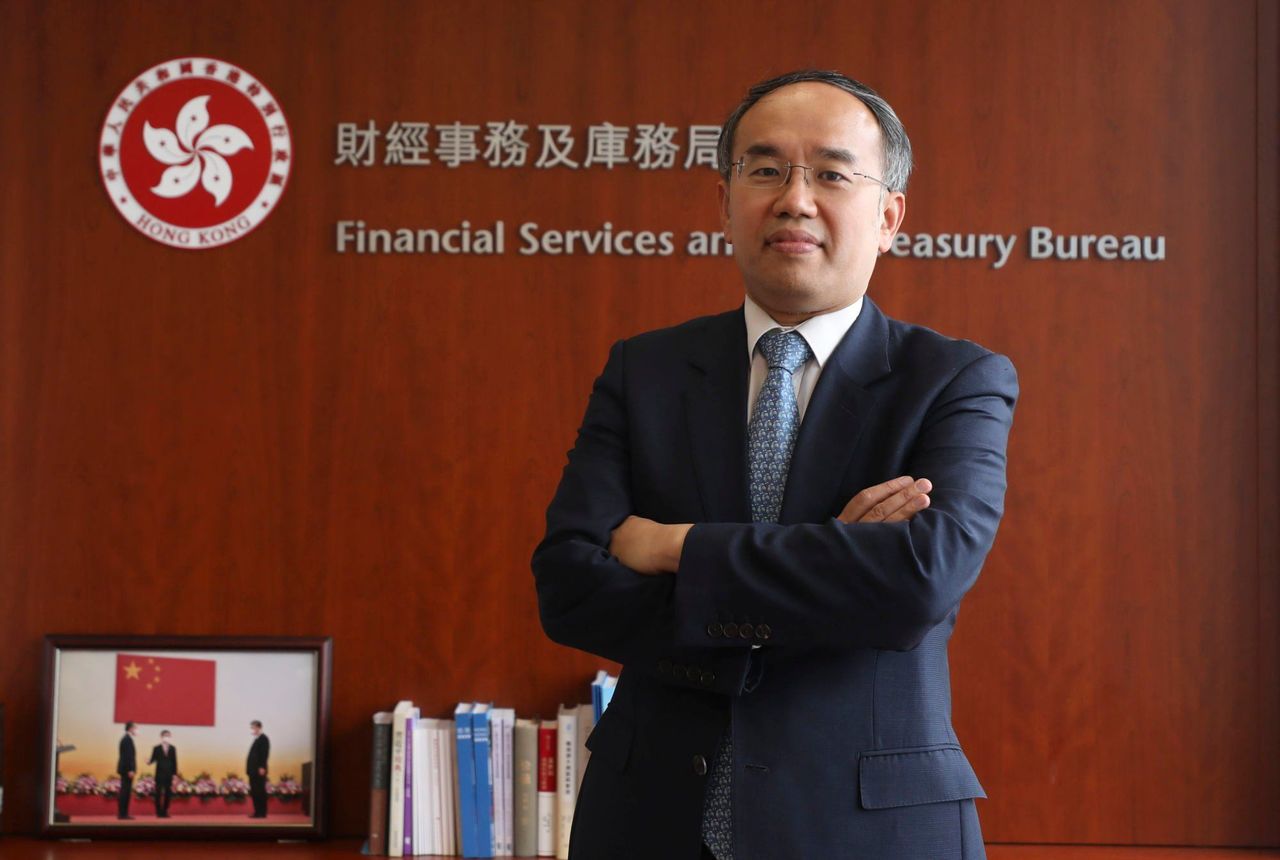Hong Kong News

Hong Kong’s internet, financial security could become ‘battleground without gunfire’
Hong Kong must protect its internet and financial security as the two areas could become “a battleground without gunfire” posing as much risk to the city as an actual war, a minister has warned.
Speaking at a seminar marking National Security Education Day, Financial Secretary Paul Chan Mo-po on Saturday said the city needed to safeguard its status as an international fiscal centre in light of rising tensions between China and the West.
“Finance and the internet can be a battlefield without gunfire, with a destructive force no less than that of warfare. It is one of the most dangerous battlegrounds in the world, capable of destroying a society without one noticing it or the use of a single soldier or gunfire,” he said.
“Therefore, we should stay vigilant to safeguard Hong Kong’s status as an international financial centre with a free flow of information and capital. This is very important to our nation as well as Hong Kong.”
Chan pointed out that Hong Kong served as an important “testing ground” and “firewall” for the country’s reform of its financial market and opening up to the world, adding that the city needed to guard against security crises and potential threats.
Better educating the public on the risks of cyberattacks, as well as holding regular drills and sharing intelligence between government departments were among the measures that could help protect the city’s internet and financial security, he added.
“We have to set up a risk monitoring and precaution mechanism for early detection of anomalies, and will prepare different action plans … for delivering quick responses to nip any risk in the bud,” he said.
 Secretary for Financial Services and the Treasury Christopher Hui.
Secretary for Financial Services and the Treasury Christopher Hui.
Secretary for Financial Services and the Treasury Christopher Hui Ching-yu, who is currently on an official visit to Belgium, told the audience in a pre-recorded speech that authorities had received 60 submissions from various interest groups, individuals and companies during a recently concluded, three-month public consultation on plans to regulate crowdfunding.
The proposal, unveiled last December by Hui’s bureau, would require anyone planning to collect donations from individuals or other parties either in-person or virtually to apply to a new Crowdfunding Affairs Office for approval.
Under the proposed measures, law enforcement agencies will be empowered to ban or halt any unapproved or illegal crowdfunding activities, as well as prosecute organisers and donors.
Those raising funds above a specific amount would also be required to tell donors to contribute under their real name.
“When formulating the relevant proposals, we will bear in mind that some fundraising activities in the market already regulated by financial institutions should not be affected by the proposed crowdfunding regulatory regime,” he said
Hui added that his bureau was taking into consideration views collected during the consultation before pushing forward with the proposed legislation.
The minister vowed to offer exemptions and convenient measures ensuring that charitable activities and other emergency crowdfunding projects would remain unaffected.
“We hope to establish ‘firewalls’ that can guard against any crowdfunding activities that threaten national security, while providing convenience for legitimate crowdfunding activities to be conducted in Hong Kong in an orderly manner so as to uphold public interests,” he said.
Secretary for Security Chris Tang Ping-keung, meanwhile, said the online space could become a major loophole in protecting national security, adding “the new battle had moved to the internet” as the geopolitical situation intensified.
Tang said the influence of fake news had been shown by the 2019 social unrest. “[False information] can spread widely at a very high speed on a massive scale. It’s difficult for people to tell … true from false, and they are influenced very easily,” he added.
Authorities were also exploring the possibility of enacting legislation that outlined cybersecurity responsibilities for internet service providers and would pay close attention to the information superhighway, he said.











